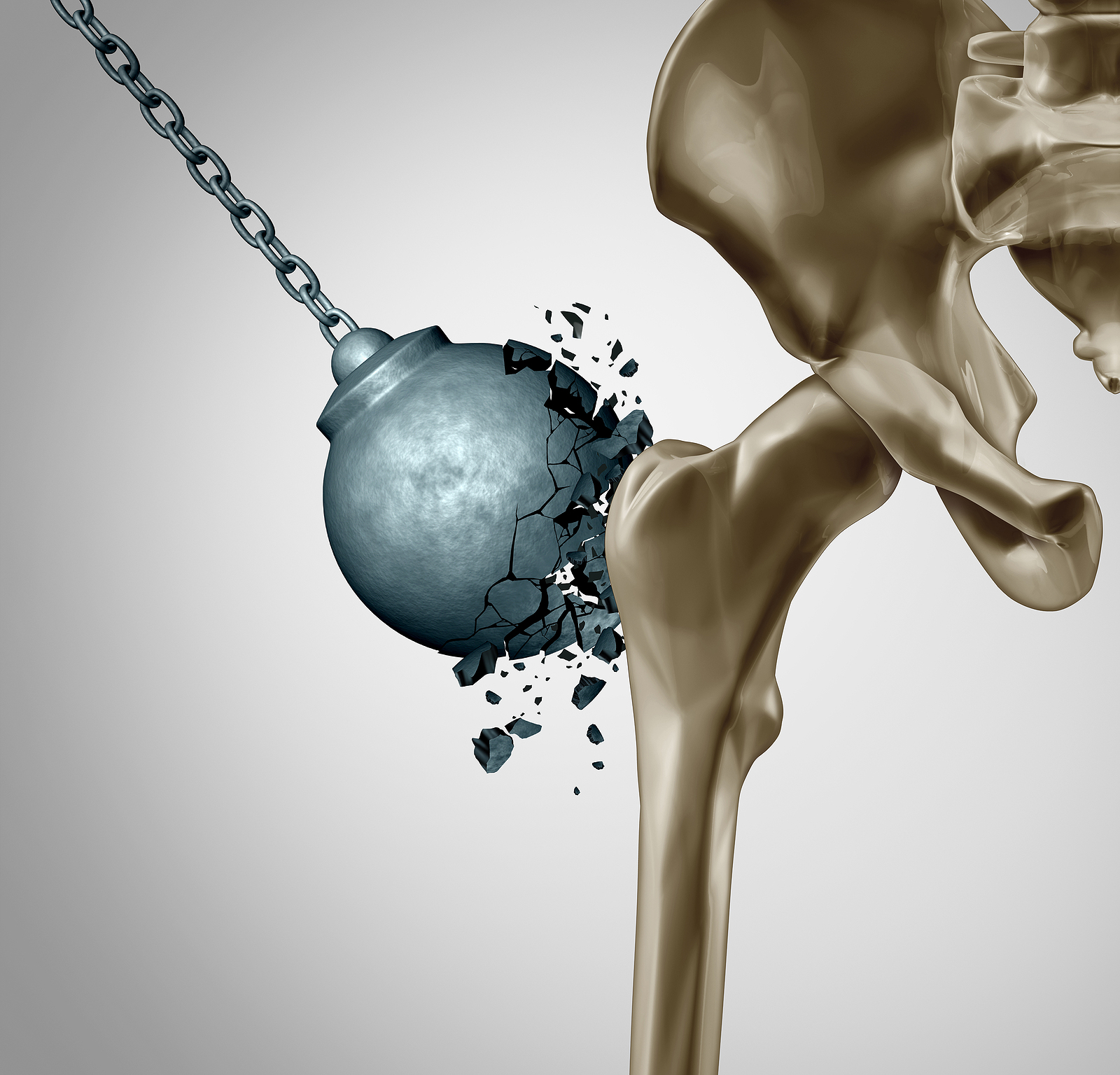
Our bones play an important role in the body. Strong bones not only protect against fractures from falls, but they also support good posture, protect your internal organs, and allow you to remain active, which in turn contributes to healthier bones. (AARP) So looking after your bones’ health and strength is a win-win.
THE LIFE CYCLE OF BONE HEALTH
From birth to around age 35, bones are constantly breaking down and reforming. Old bone is reabsorbed into the body and helps make new bone tissue. While you’re young, your body gains more bone tissue than it breaks down, resulting in increased bone mass. After that, the process slows and reverses, losing more bone mass than you gain.
Your likelihood of developing osteoporosis — a condition in which bones lose mass, becoming weak and brittle — or its precursor, osteopenia, depends on how much bone mass, or density, you attain by the time you reach your peak and how rapidly you lose it after that. (Medline)
WHAT CAUSES BONE LOSS?
There are no symptoms of bone loss, even once it has advanced to osteoporosis. Often, the first sign of weakening bones is a fracture, which can occur even without trauma.
Bone loss occurs with normal aging and often isn’t linked to specific causes. It occurs at varying rates, depending on numerous factors. Some factors can’t be controlled, but certain lifestyle modifications can slow the decline.
The best approach is to become aware of your risk factors so you take early action. Factors that can increase your risk of bone loss include:
- Age and race. Women over 50 and men over 70, as well as people of both sexes who are white or of Asian descent have a higher risk.
- Family history. Having a parent or sibling with osteoporosis, especially with hip fracture, increases your risk.
- Body frame size. Men and women with small body frames have less bone mass to draw from as they age, putting them at greater risk.
- Hormones. A drop in testosterone or estrogen levels, usually associated with aging or hormone treatment, is a significant cause of bone loss. High levels of thyroid hormone, caused by an overactive thyroid or from taking medication to treat an underactive thyroid, can also contribute to thinning bones. (BHOF, Mayo Clinic)
- Severe dietary restrictions. Eating disorders, weight-loss surgery, and conditions like celiac disease that affect the body’s ability to absorb calcium, can deprive your body of nutrients needed for bone strength and flexibility.
- Certain medications. Long-term use of corticosteroid medications, as well as some treatments for cancer and autoimmune disorders, can be damaging to bone. Talk with your doctor before discontinuing any medications or treatments for chronic illnesses and conditions. (Mayo Clinic)
MAINTAINING HEALTHIER BONES
It’s never too late to take steps to strengthen your bone density and slow bone loss.
- Include sufficient calcium and vitamin D in your diet. A diet low in calcium contributes to bone loss and increases the risk of fractures. Vitamin D helps the body absorb more calcium. If you’re worried about getting enough of these nutrients from your diet, talk to your doctor about supplements.
- Increase your daily physical activity. Weight-bearing exercises, such as walking, climbing stairs, and other impact-producing sports can help strengthen your bones and slow bone loss. Balance exercises such as tai chi and yoga can reduce your risk of falling, especially as you get older. (Mayo Clinic)
- Avoid or limit tobacco and alcohol. Smoking slows the production of bone-forming cells. Excessive alcohol interferes with the balance of calcium. Don’t smoke and limit your alcohol intake to 1-2 drinks per day.
ASK YOUR DOCTOR
See your doctor if you experience sudden, severe back pain, especially when bending or twisting. He or she may order a bone density test, a type of X-ray that measures the amount of calcium and other bone minerals present in a segment of bone. Your doctor will evaluate the results and your risk factors, recommend lifestyle changes, and may prescribe medication to help slow bone loss.
People over 50 with a family history of osteoporosis, or who have broken a bone or lost one or more inches of height should get a baseline bone density scan to determine if they’re at high risk. Women over 65 should have a bone density test every two years. (Family Doctor)
WORK CITED
“Bone Density Test.” Mayo Clinic. Sept. 25, 2021. https://www.mayoclinic.org/tests-procedures/bone-density-test/about/pac-20385273
“Bone Health: Tips to Keep Your Bones Healthy.” Mayo Clinic. March 6, 2021. https://www.mayoclinic.org/healthy-lifestyle/adult-health/in-depth/bone-health/art-20045060
“Osteopenia.” American Academy of Family Physicians. Last update: November 3, 2020. https://familydoctor.org/condition/osteopenia/
“Osteoporosis.” Mayo Clinic. Aug. 21, 2021. https://www.mayoclinic.org/diseases-conditions/osteoporosis/symptoms-causes/syc-20351968
Paturel, A. “Boost Your Bones at Any Age.” AARP The Magazine, February/March 2015. https://www.aarp.org/health/conditions-treatments/info-2015/boost-bone-health.html
“What Causes Bone Loss?” Medline Plus Encyclopedia. Reviewed May 13, 2020. https://medlineplus.gov/ency/patientinstructions/000506.htm
“What is osteoporosis and what causes it?” Bone Health and Osteoporosis Foundation (BHOF). https://www.bonehealthandosteoporosis.org/





